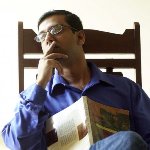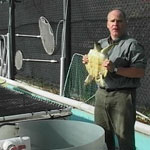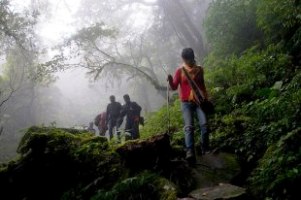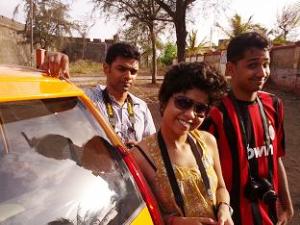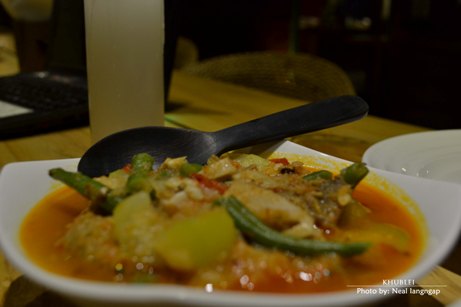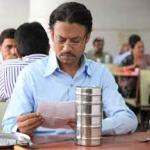‘Illegal Migration’ from Bangladesh is a seasonal fodder for politicians, activists and the media. So when the new Modi government took charge in Delhi last month, this issue had to be revisited. The Prime Minister, Narendra Modi in his election campaign had given quit notices to illegal Bangladeshis in Assam and West Bengal. His state party units were meant to carry the baton and run the relay to meet political ends. I was called to one of the studios in Delhi where I spent most of my television career and after the debate was aired my twitter notification had bitter reactions some of which I am copying here:
“ @kishalay Good to know your support for Bangladeshis in Assam. You should have the conviction of conscience to speak out the truth. And what exactly do you mean there is no data? Check out census growth rates since 1971. Or read any Supreme Court ruling. You are basically inciting cultural genocide of the Assamese people by vaguely implying that this is issue is controversial. “
I was reassured about my stand when I read a longer comment about the same programme on another social media site by my senior colleague Sanjoy Hazarika who very pithily summed up not just the problem of illegal migration but the problem of debating it:
“Sanjoy Hazarika This is part of the problem with this so called Debate: people target Muslims of Bangla origin. That's the original sin... Since not all Bangla Muslims as West Bengal and elsewhere will tell u are, not Bangladeshis. Having researched in Bangladesh and in Assam, I doubt if the figures are more than 20 lakh for Assam and not more than 15-20 million overall. The numbers game is very dangerous and quickly turns communal as we have seen in 2012 and a few weeks ago in Assam. The social media space also becomes bitter and ugly with people throwing abuse and misunderstanding at each other. If anyone is interested, they can read my writings.... We don't realize that it’s not even on their radar screen, not an issue at all! Unless their policy makers, scholars and media get interested, our shouting from the rooftops or the streets isn't going to mean very much. And friends, let's understand that Bangladesh is an independent country of over 170 million, with HDI which is better than most states of the NE and better record of girls enrolled in school and a pro-active family planning program which gives it a better growth rate than many parts, of South Asia, including parts of India. Migration is the way of the world, look at our own histories... But managing migration is the real issue. Don't be taken in by numbers ... Calculate how many thousands would have to cross the borders every day for 40 years to make up the kind of numbers which the extreme right claims exists”
It is interesting, however, that the new government has embraced a fresh neighbourhood policy, (so far absent from the Indian state) highlighted by the PM’s first foreign visit to Bhutan and the external affair minister’s first visit to Bangladesh. ‘Illegal migration’, we have been told was discussed at length.
Though there is nothing new to add to it, let us look at the ground reality for the moment and study it in the larger context of migration itself.
It is a well-known fact that the migration is coupled with two aspects of market forces; the demand which pulls and the supply which pushes. But the paradox is that while the economic logic of liberalism wants openness, the political and legal logic points towards shutting down. The last half of the 20th century has witnessed dramatic migration because of easier travel and communication technology. Today it is believed that 175 million people live outside their countries. But migration remains a challenge because illegal movement of people can violate sovereignty and change demographies. Assam has been battling these at many fronts. Migration is perceived as a threat to national security and conflicts.
The world today is an ‘emerging migrant state’. And when legal migration is not an option, migrants have increasingly turned to professional smugglers. A global industry of migrant smuggling often with the involvement of organized crime has come up. Nowhere is thisbetter exemplified than the Indo Bangladesh border where a $500 million illegal cattle trade flourishes across 68 smuggling corridors with the apparent sanction of the Indian border guards. Those who don’t pay are at the risk of getting shot. The police stations along the border are grossly understaffed and it is the underworld that dominates this stretch. That is the ground reality to which Assam has been blind to.
There is another reality that organisations like the AASU have been in denial about. India has no credible data of illegal migrants. And let’s not forget that deportation is not practical. In the previous NDA term the then Home Minister, L K Advani had ordered deportation. 265 migrants were rounded but Bangladesh refused totake them in. Once they are identified and the country concerned refuses to take them back what do you do with them?
What you can do is regulate the border, identify migrants, regularize them and end the regime of smuggling.

